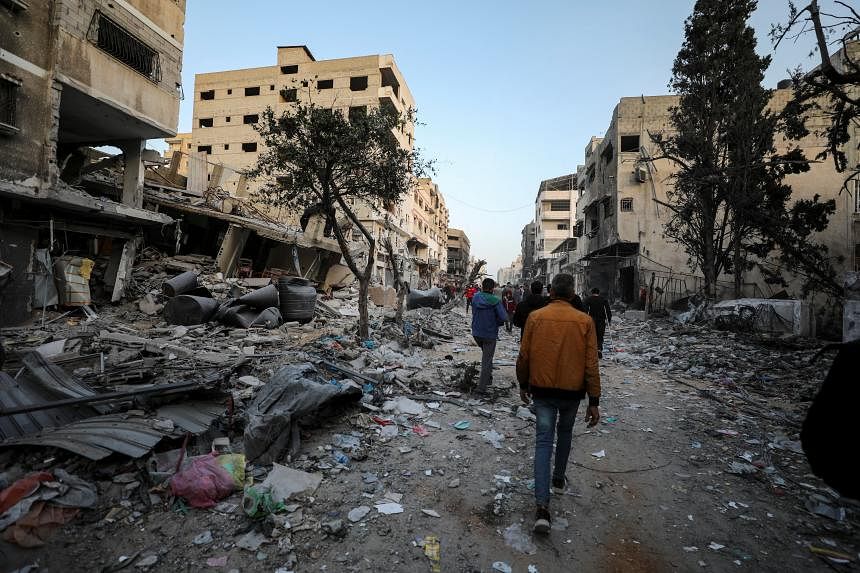SINGAPORE – Students will need to grapple with more potentially sensitive or emotive topics such as geopolitical conflicts in the coming years, Education Minister Chan Chun Sing said on April 2 in Parliament.
Responding to Mr Sharael Taha (Pasir Ris-Punggol GRC), who asked how the Ministry of Education (MOE) decides which complex issues to address in schools as part of character and citizenship education (CCE) lessons, Mr Chan said that the Israel-Hamas conflict will not be the only sensitive or emotive issue that students will come across in the future.
The CCE lesson on the Israel-Hamas conflict had been rolled out for upper-primary, secondary and pre-university students since February 2024.
Slides from the CCE lesson were circulated online, igniting discussion on social media over how the topic had been taught and whether it was appropriate to address this issue in schools.
Mr Sharael asked Mr Chan if it would be useful for students to discuss topics like worsening geopolitical conflicts before tensions are significantly heightened.
“There will be other equally, if not more, challenging circumstances that we have to deal with, and (we have to) allow our students a safe space to understand their emotions, grapple with the issues, verify the information they come across and take positive actions,” said Mr Chan.
The aim of including such issues in CCE lessons is to help students understand the diversity of perspectives within society, as well as Singapore’s priorities, positions and interests, he added.
“Fundamentally, in this House, we have to consider this: Do we agree that this is an emotive and sensitive issue that can fray our social fabric and cohesion?” said Mr Chan.
“Fundamentally, if we believe that, then do we agree that we have a leadership responsibility to guide our people, especially our young, to not allow this to affect our social cohesion and harmony?”
Mr Chan said: “If we agree to both of these points, then we welcome constructive suggestions on how we can better support our teachers, principals who have stepped forward to execute this challenging task for our nation.”
Progress Singapore Party (PSP) Non-Constituency MP Leong Mun Wai asked the Education Minister why the lesson slides for the Israel-Hamas CCE lesson have not been released to the public, although they have already been seen by students.
To this, Mr Chan said that the slides on their own do not fully communicate how the topic is taught, and that it is better for parents to discuss the lesson content with the teachers who can better explain how the slides are used.
“MOE is being more than transparent. We are not only prepared to show the parents the material, but are also prepared to explain to the parents how the materials are used, rather than to just give a deck of slides which can be taken out of context,” he said.
Some schools have received requests from concerned parents about the lesson materials, he said, and these schools have engaged parents.
PSP Non-Constituency MP Hazel Poa asked if MOE had consulted with community and religious leaders before coming up with the Israel-Hamas lesson materials.
Mr Chan said that MOE did consult various stakeholders, but ultimately, it made the decision to go ahead with the lesson.
He said: “Ultimately, consultation does not take away the leadership responsibility for us to decide what is right and necessary to do for our own society and our children.”
While MOE welcomes constructive suggestions on how to improve the content, Mr Chan said that he cautions against the notion that it is possible to come up with a set of materials that would satisfy everyone.
“None of us, not even historians, will be able to come up with what would be considered a fair representation from everyone’s perspective. And that is not our goal,” he said.
“Our goal is to understand that such differences exist, and that they have an emotive pull on different segments of our population in different directions,” said Mr Chan.
“And our goal is to ask ourselves how to help our children navigate through these challenges, come to their conclusions, but most importantly, not lose the peace and harmony that we have in this land. And it is a work that is in progress.”
He said: “While we may not have a common past, we can all share a common future with a shared sense of ethos, or what it means to be Singaporean and not to be torn apart by other competing forces.”


